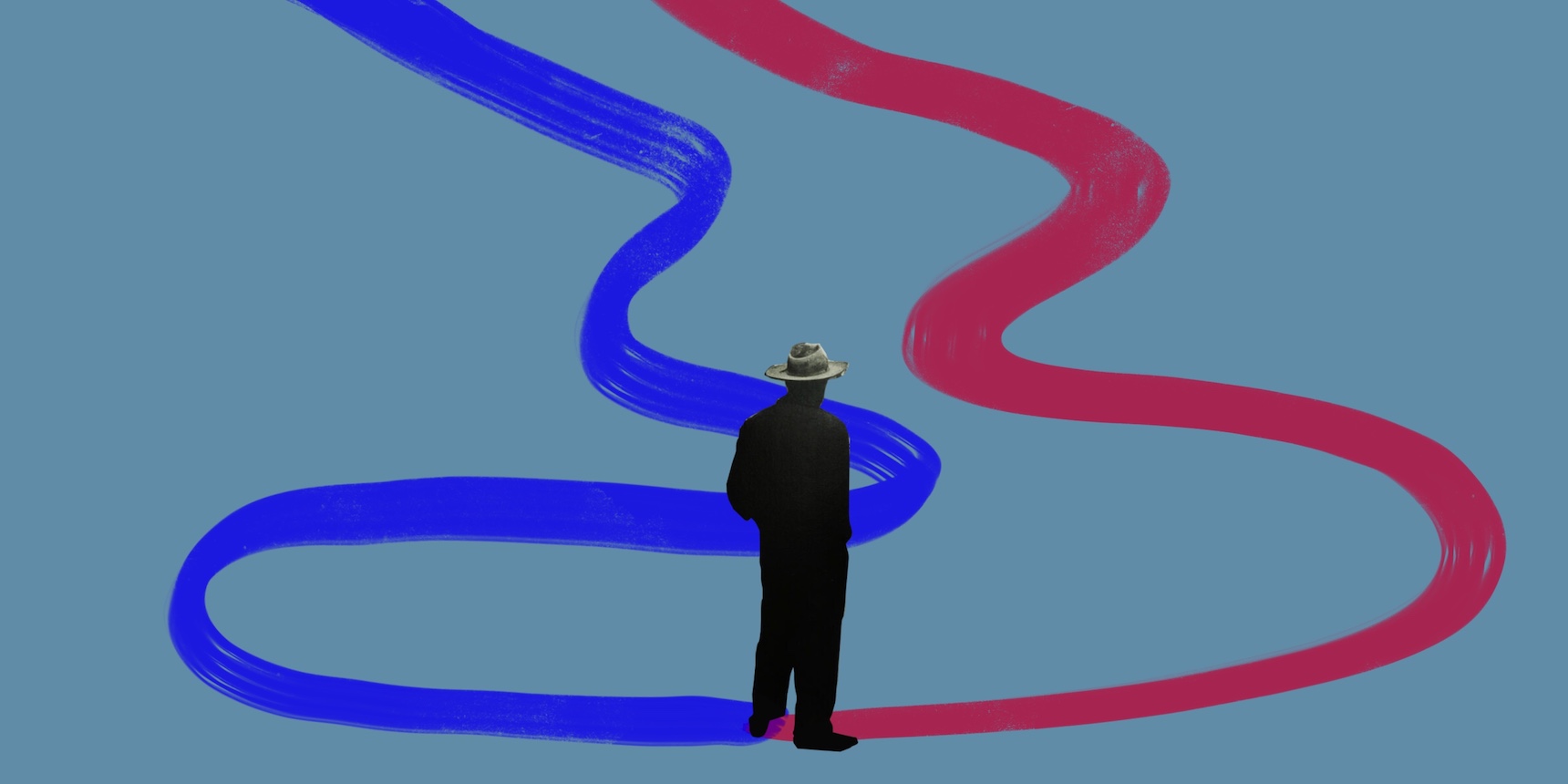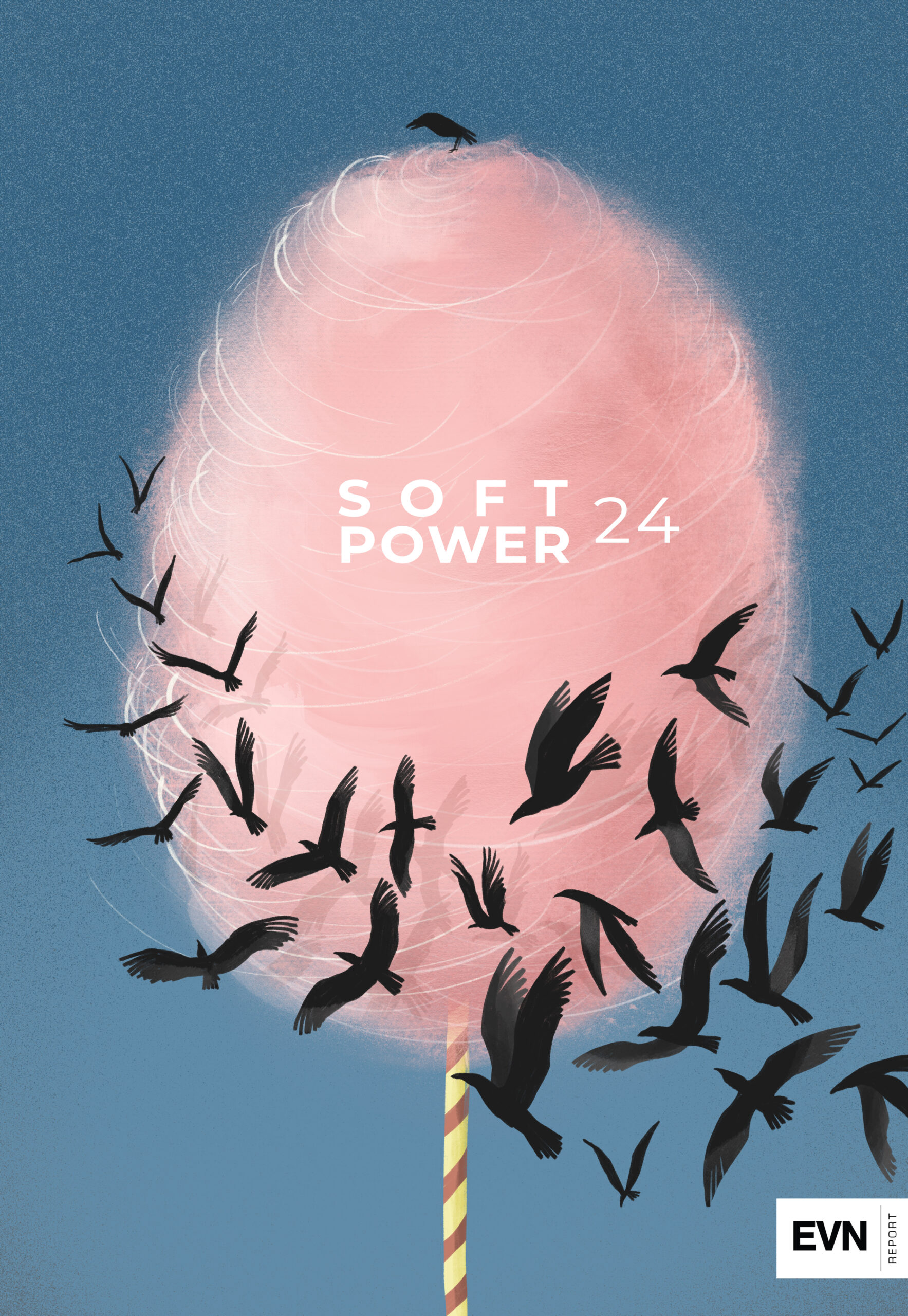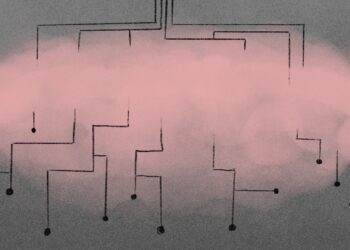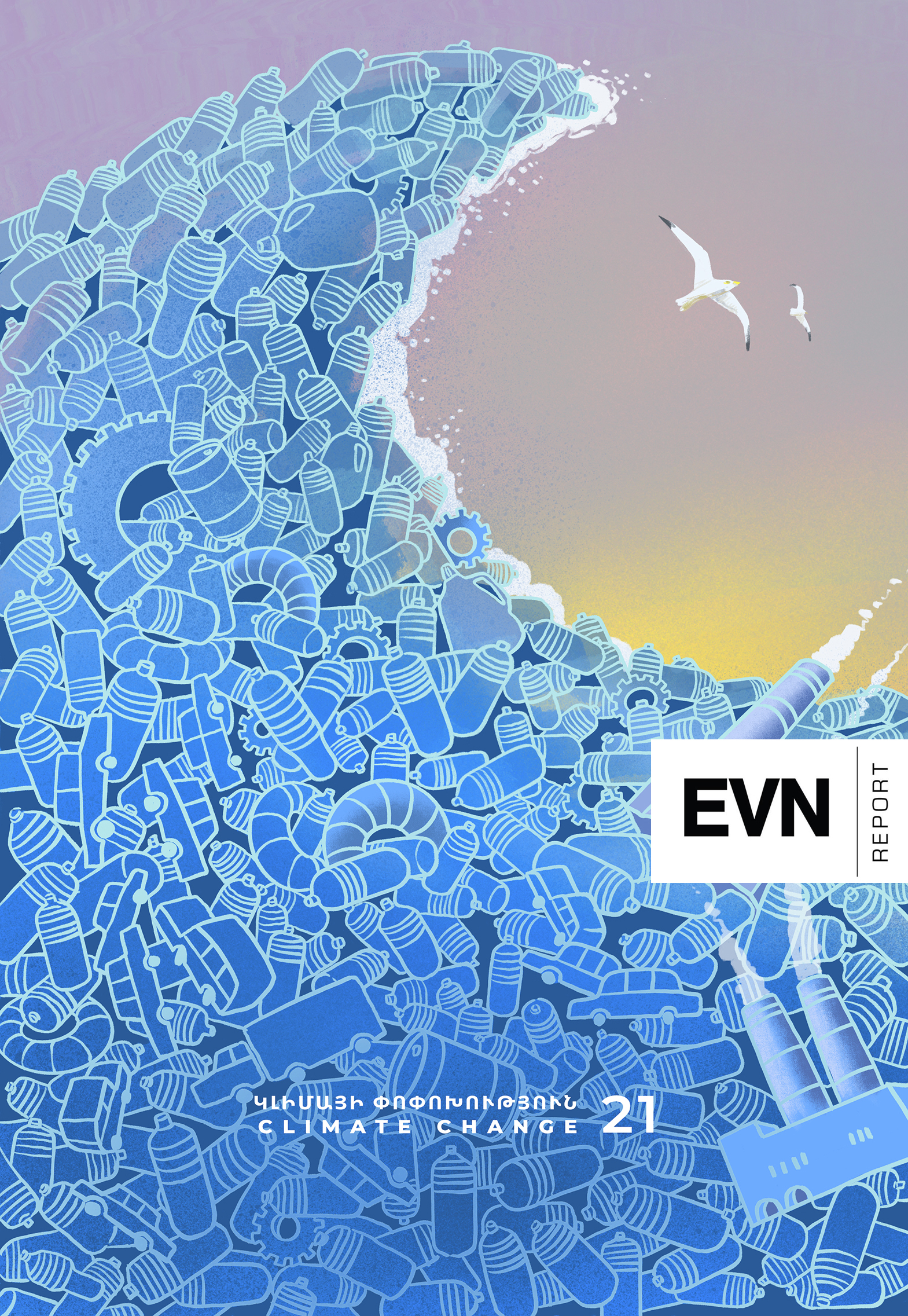

When current world affairs seem guided primarily by realpolitik and hot conflicts rage around the world, there seems to be little understanding of the importance of soft power. While perhaps not as visible as hard power, soft power still remains an important instrument in the diplomatic toolkit of nations, and in particular, of big powers.
The term was coined by American political scientist Joseph Nye in 1990 in the wake of the collapse of the Soviet Union, when the United States was left as the sole superpower in the world. Nye defined soft power as the ability of a state to persuade others through attraction rather than coercion, thus obtaining support for its policies. In essence, soft power is a form of “smart power.” A country derives its soft power from its ideals, values and culture. After the collapse of the Soviet Union, the U.S., the leader of the new unipolar world, constructed a new approach toward the 15 independent states that emerged from the Soviet Union –– and it did so relying heavily on soft power.
American soft power has been quite effective in the Baltics, Ukraine, Georgia and Armenia. In the case of Armenia, American soft power is unique. The large Armenian Diaspora in the U.S. has served as a conduit in proliferating American ideals, values and culture, with active involvement in different aspects of life in Armenia through repatriation, business ventures, charitable work or regular short or long-term visits. The tacit admiration of all things American has seeped into Armenia’s socio-political culture, making Armenia fertile for the further implementation of American soft power.
American Soft Power in Armenia
After the collapse of the Soviet Union, Russia maintained strong influence over Armenia given Armenia’s economic reliance on Russia and Russian military presence in Armenia. While Russian hard power and leverage over Armenia continued to grow as Russia acquired economic monopolies in Armenia’s energy and security sectors, the United States has worked on enhancing its soft power capacities in Armenia for the last 30 years.
For a country to be able to project soft power, it must first be attractive for other countries and populations, namely portray a positive image through a flourishing economy, scientific and technological advances, protection of human rights and freedoms for its own citizens. The United States derives its soft power from its liberal values and culture which is spread throughout the world, including through Hollywood, popular American brands and technologies. It also offers vast economic opportunities to foreigners and its economy attracts immigrants as well as expats. While the international image of the U.S. may have suffered in recent years with the 2003 invasion of Iraq and the 2016 election of Donald Trump as president, it is still an appealing country for its economic opportunities and education.
The U.S. has been involved in promoting democracy, human rights and good governance in Armenia since the country’s independence in 1991. Only one year after Armenia gained independence, one of America’s most influential soft power instruments, the Peace Corps, was established in the country. During the First Nagorno-Karabakh War, blockade and electricity shortages in the 1990s, American volunteers were sent to remote Armenian villages to live among villagers, to teach in local schools or working to advocate for environmental protection and women’s empowerment.
The United States Agency for International Development (USAID) began operations in Armenia even before the country’s independence. It, for example, sent humanitarian aid to Armenia in the aftermath of the devastating 1988 earthquake. Permanent USAID representation in Armenia was officially established with the opening of the U.S. Embassy in Yerevan in 1992. Since then, the agency has been promoting democratic transition, economic security, peacebuilding and disaster prevention, preparedness and response in Armenia.
The American Councils for International Education, which organizes exchange, education and cultural development programs throughout the world, has been active in Armenia since 1996. In 1993, the Future Leaders Exchange program was launched enabling Armenian high school students to study in the U.S. for an academic year while living with American host families. Around 40 Armenian students from different parts of Armenia participate in the program every year. There are also various exchange programs and study opportunities for undergraduate and graduate students in American education programs. These have given rise to a vast network of alumni of various American education programs who work in different sectors of the country.
There is also close cooperation between the Armenian Defense Ministry and the U.S. Department of Defense, including American military educational institutions training Armenian military personnel. The U.S. is also involved in cultural preservation and developing Armenia’s agriculture.
Russian Soft Power in Armenia
While the U.S. began to utilize its soft power in Armenia and other post-Soviet countries after independence, Russia joined the soft power game only in the beginning of the 2000s with Vladimir Putin’s ascent to power. At the same time, Russia never fully developed its soft power capabilities in Armenia, even as it had less of a challenge than the U.S., with the Russian language widely spoken in Armenia and the common Soviet past of the two countries.
In the beginning of the 1990s Russia was in transition from a planned to a free market economy and the country struggled to fill in the shoes of the Soviet Union as a global power. As the Russian economy recovered in the 2000s and Russia aspired to reclaim its lost superpower status, Moscow started making attempts at projecting soft power. However, Moscow did not invest in other countries the way the U.S. did. Russian investments in Armenia were not aimed at uplifting the country and improving the socio-economic wellbeing of its society. Russian state and private companies acquired many assets in Armenia, including Armenia’s railroad and the gas and electricity grid –– hard power tools and a means of pressure on Armenia. Contextually, Russia’s soft power approach remains at times incoherent, and at times misguided, for Russia almost always resorts to hard power, thus limiting the potential growth of its soft power capabilities.
One of Russia’s most important instruments of soft power is the Russian language, spoken by over 260 million people throughout the world, mostly in the former Soviet republics. Russia established Russia Today (RT), which also broadcasts in English, to promote its perspective to the world. Russian TV channels are also widely watched in Armenia, exposing the Armenian public to information intended for the Russian domestic audience and providing news about world events through the Russian lens. RT, created to be a propaganda machine, spreading disinformation rather than promoting Russian values and culture, is another tool of soft power.
In order to promote Russian cultural heritage through the Russian language, Putin’s administration came up with the Russkiy Mir Foundation in 2007. The aim of the foundation is “to promote the Russian language, as Russia’s national heritage and a significant aspect of Russian and world culture, and to support Russian language teaching programs abroad.” The Russkiy Mir Foundation has close to 70 Russian Centers in over 40 countries. There is one such center in Armenia at the Yerevan State University.
Aside from the Russian Center, there are several Russian schools in Yerevan and larger towns of Armenia. The Russian-Armenian University in Yerevan offers undergraduate and graduate courses in numerous disciplines and the “Gazprom school” established by Gazprom Armenia is an educational-sports complex designed for 700 students. One of the better known culture centers is the Moscow House in Yerevan. According to its website it is a center for promoting cultural and business cooperation between Moscow and Yerevan, implementing projects aimed at promoting Russian culture and the Russian language in Armenia as well as deepening Armenian-Russian ties and supporting Russian nationals living in Armenia. A Putin Club — the aim of which is to spread the ideas of Vladimir Putin –– was opened in Armenia in 2012 to great fanfare. At the same time, there is no information about what the club has been doing since then or even if it ever functioned. Another Russia supported organization operating in Armenia is the Lazarevsky Club, which holds regular sessions aimed to promote dialogue between Russian and Armenian intellectuals and public figures. In recent years the Russian and Armenian governments have been discussing opening more Russian schools in Yerevan.
After the collapse of the Soviet Union, Russia maintained an important position as center for education and research for many of the former soviet republics, thus exercising some form of soft power over those countries. Since Armenia’s independence until the 2018 revolution, most of Armenia’s political elite was trained in Russian universities.
Another soft power leverage that Russia has over Armenia is Russia’s significant Armenian community, a large number of whom are migrant workers. An economic market that attracts migrant workers is a powerful soft power tool. For Armenian citizens, it is generally easy to travel and find work in Russia as there is familiarity with the language and it is more straightforward to obtain work permits and residency than in other countries. Russia’s Armenian diaspora –– quite well integrated into Russian society –– largely shares Russian ideals and values, attitudes which are not necessarily accepted by Armenians in Armenia. As so many Armenians depend on seasonal work in Russia, Moscow can and has used this dependence as a means to influence policies in Armenia; in times of disagreements between Yerevan and Moscow, Russia is known for making registration processes stricter for Armenian migrant workers, it also imposes tighter control on the streets of Russian towns and cities when police stop non-Russians and check their documents. In other words, it utilizes a soft power instrument as hard power.
In order for a country to project soft power it must be appealing and admirable for other countries in terms of its economic advances, democratic values, scientific developments and culture. When it comes to fundamental ideals, such as democracy, free and fair elections, freedom of speech and protection of human rights, Russia has little to offer. Moreover, the country struggles with guaranteeing fundamental freedoms, protecting human rights and its political system is based on corruption and oligarchy. Hence, for many post-Soviet countries Russia is not appealing –– rather it is perceived as a threat. Many of those countries manage that threat by cooperating with Russia.
Lastly, despite Vladimir Putin’s attempts to experiment with soft power during the early years of his presidency, Russia’s annexation of Crimea marred Russia’s international image and the war it unleashed on Ukraine in February 2022 caused irreparable damage to its reputation. Given these events, anti-Russian sentiments have also grown in Armenia, especially after the 2020 Artsakh War. Soft power is meant to promote a positive image of a country to thus influence other countries, yet Russia has consistently failed to portray that image on a global level and, more recently, in Armenia as well.
Russia prefers threats and coercion over persuasion and attraction. Rather than persuade Armenia to align with its interests, Mowcow uses Armenia’s economic and security dependence to get what it wants.
Conclusion
It is possible to argue that the lack of real Russian soft power in Armenia is due to its disregard of the concept. Although Russia tried to utilize its language and cultural heritage as soft power instruments, it still prefers coercive methods over soft power. Another argument for the lack of Russian soft power in Armenia is that Armenia was perceived as loyal to Russia given its economic and security dependence to the extent that Moscow did not see the need to win over the hearts and minds of Armenians.
The U.S. on the other hand has been projecting soft power in Armenia since the early days of independence. Moreover, Washington seems to have changed its strategy and pivoted towards Armenia –– after decades of maintaining a balance in support for Armenia and Azerbaijan around the Nagorno-Karabakh conflict, Washington has recently started to call out Azerbaijan for its aggressive behavior. Moreover, in September 2022, U.S. House Speaker Nancy Pelosi visited Armenia as a show of support for Armenia’s democracy against autocracy, after yet another Azerbaijani incursion into Armenia’s sovereign territory.
Russian inaction over the last two years, as Armenia has been facing major security threats and especially during the September 13-14 Azerbaijani attacks on Armenia, have left many Armenians disappointed in Russia. While Russia will likely maintain its hard power monopoly over Armenians for the foreseeable future, with 30 years of active involvement in the country and with the recent support that Armenians see coming from the U.S., Washington may be closer than ever to winning over the hearts and minds of the Armenian population.
References:
1 – Trunkos, J., Comparing Russian, Chinese and American Soft Power Use: A New Approach, Global Society (2021).
2 – Rutland and Kazantsev, The Limits of Russia’s ‘Soft Power’, Journal of Political Power (2016).
3 – Kearn, D., The Crisis of American Soft Power, Journal of Political Power (2022).
Magazine Issue N24
Soft Power
EVN Report’s magazine issue for November is entitled “Soft Power”. While power was understood through the prism of aggression and brute force, or what is generally known as hard power, by the 1990s, a new conceptualization of power was articulated. Soft power influences the preferences of other actors not through coercion or force, but through convincing, attracting, appealing, or enticing. In the coming week, we will be publishing diverse articles on this concept, from the notion of shared values of a “community of states” to American and Russian soft power in Armenia to exporting innovative education to the world.
Soft Power, the Community of States and Armenia
In this article, political scientist Georgi Asatryan, reviews the academic literature on the theory of soft power and then considers it in the context of Armenia.
Read moreIssue N23
October 2022
N.E.W.S.
Issue N22
September 2022
Cease, Fire
Issue N21
August 2022
Climate Change
See all Magazine Issues here






